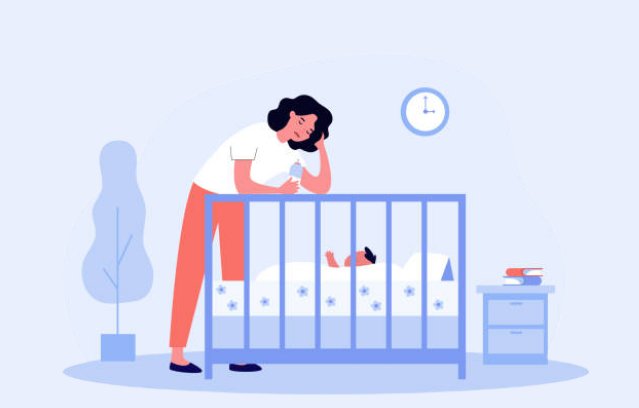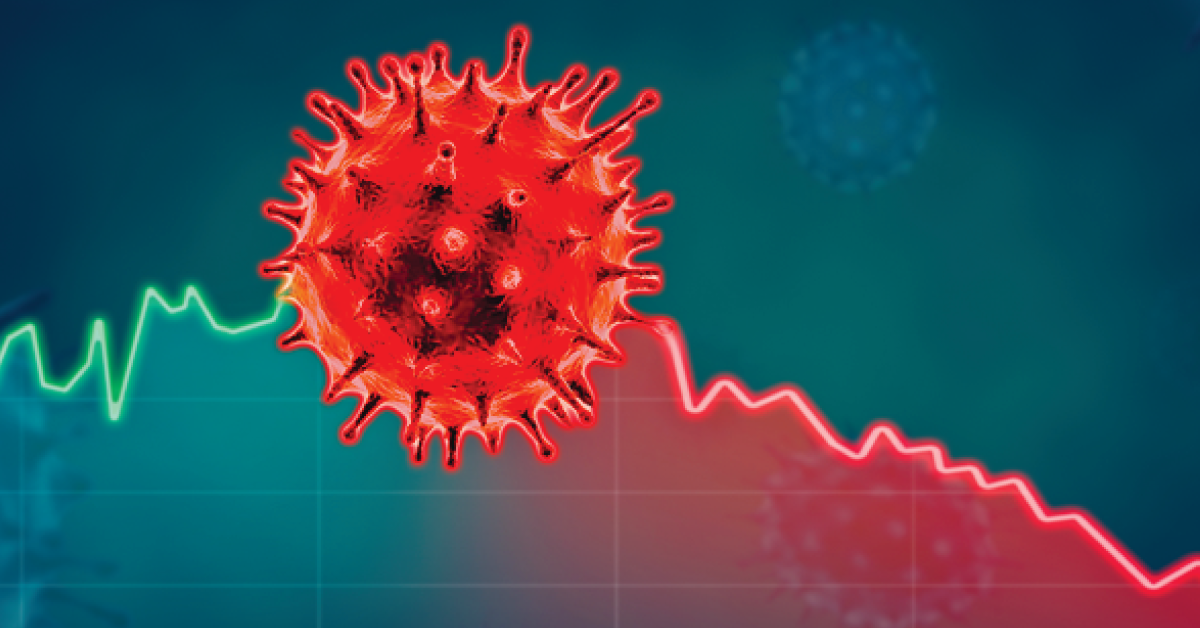
Subjects surrounding mental health and well-being are more widely discussed today than ever before. Depression is common in new mothers. Learn about the signs and symptoms—and what you can do to feel better.
Baby Blues or Postpartum Depression
Due to the sudden change in hormones, immediately after delivery, the majority of women experience at least some symptoms of the baby blues, combined with stress, isolation, sleep deprivation, and fatigue. After delivery, new moms are more tearful, overwhelmed, and emotionally fragile for the first few days, which peak around a week after delivery, and gradually subside by the end of the second week.
The majority of new moms will experience a few weeks of baby blues after giving birth. However, if they do not subside or get worse, you may suffer from postpartum depression. This is an emergency situation that requires the attention of an Obstetrician at your Fertility Clinic.
Postpartum depression
Gynecologist explains that up to 1 out of 8 new moms suffer from postpartum depression. Unlike the baby blues, postpartum depression doesn’t go away on its own. It can appear days or even months after delivering a baby; it can last for many weeks or months if left untreated. If you have postpartum depression, you may have difficulty getting through the day and caring for yourself and your baby. Postpartum depression can affect you or any women with easy pregnancies or problem pregnancies, new mothers or mothers with one or more children, regardless of occupation, age, race or ethnicity, culture, or education.
Signs and symptoms of postpartum depression
Postpartum depression and the Baby blues share many symptoms, including Mood swings, Crying jags, Sadness, Insomnia, and Irritability. The difference is that with postpartum depression, the symptoms are more severe such as suicidal thoughts or an inability to care for your newborn. In the beginning, postpartum depression can look like the normal baby blues but if not treated on time, it poses a more serious problem that one shouldn’t ignore.
The warning signs of postpartum depression are different for every woman, and one may experience one or many symptoms like:
The loss of pleasure or interest in things that you once enjoyed, including sex.
- Eating much or much less than you usually use to.
- Anxiety or panic attacks
- Scary thoughts, Misery
- Feeling guilty or worthless
- Excessive irritability, anger, or agitation
- Mood swings -Sadness, crying uncontrollably for very long periods of time
- Fear of not being a good mother
- Sleeping too much, difficulty falling or staying asleep
- Losing interest in baby, family, and friends
- Difficulty concentrating, remembering details, or making decisions
- Thoughts of hurting yourself or the baby.
If the above warning signs or symptoms last longer than 2 weeks, you may need to get help from a Gynecologist or your Obstetrician. No matter how severe or mild your symptoms are, you can recover with the right treatment.
Causes and risk factors of Postpartum depression
Postpartum depression is still unknown to many, but a number of interrelated factors and causes are thought to contribute to the condition.
Hormonal changes: Estrogen and progesterone hormone levels drop drastically after childbirth, also women experience a big drop in Thyroid levels, which leads to fatigue and depression. These rapid hormonal changes that new mothers experience may trigger postpartum depression.
Physical changes: Giving birth to a woman’s body brings many physical and emotional changes. It may be physical pain from the delivery or a drop-in baby weight, or insecurity about physical attractiveness.
Stress: New mothers are often sleep-deprived and highly stressed about how to take proper care of the baby. In addition, women might feel overwhelmed and anxious about their ability and their capability to properly take care of the baby. These adjustments can be particularly more difficult for a first-time mother, who is still equipping herself with an entirely new identity.
History of postpartum depression or history of non-pregnancy-related depression or a family history of mood disturbances is also a risk factor as a prior episode can increase your chances of a repeat episode to 30-50%. It is also significantly increased in women who discontinue medications abruptly for pregnancy purposes due to interpersonal stress, such as an abusive relationship, financial uncertainty, or a lack of emotional support.
Postpartum Psychosis
A rare but extremely serious disorder, postpartum psychosis is characterized by loss of contact with reality after childbirth and is associated with a high risk for suicide and infanticide. Hospitalization is usually required in order to keep the mother and the baby safe during this period.
Postpartum psychosis develops suddenly, usually within the first two weeks after delivery, and sometimes within 48 hours. Postpartum psychosis should be considered a medical emergency requiring immediate medical attention. Some Symptoms include Hallucinations or seeing things that aren’t real or hearing voices, Delusions (paranoid and irrational beliefs), Extreme agitation and anxiety, Suicidal thoughts or actions, Confusion and disorientation, and Rapid mood swings.
Coping with Postpartum Depression
Establish a secure attachment with your child
Attachment between the mother and child is the most important task of infancy, as it provides a child with the security he or she needs to thrive. It affects how the child engages in communication, interacts with others, and forms relationships in the future. Recognizing and responding to each other’s emotional signals, cuddling warmly and consistently equipping your baby’s physical and emotional needs. Furthermore, bonding with your baby is not only beneficial to your child; it gives you a feeling of happiness and confidence as a mother because it releases endorphins that make you feel better.
Depressed mothers are sometimes loving and attentive, but may sometimes act negatively or not respond at all when they are suffering from postpartum depression. In addition to interacting less with their babies, postpartum mothers may be inconsistent when it comes to caring for them, including breastfeeding, playing with them, and reading to them. They may also be inconsistent in the way they care for their newborns.
New mothers should try to create a strong attachment with their newborns, to build a feeling of happiness and confidence.
Don’t be afraid to ask for help and support from others
There is no better method of reducing stress than positive social contact. Earlier, When caring for themselves and their infants after childbirth, new mothers used to receive help from those around them. But today’s new mothers often find themselves alone, exhausted, and lonely without supportive adults around them. It’s more important than ever to stay in touch with family and friends when you’re feeling depressed and vulnerable. Isolating yourself will only make your situation feel even bleaker, so make your adult relationships a priority. Let your loved ones know what you need and how you’d like to be supported. You should tell at least one other person what you are experiencing, whether it’s good, bad, or ugly. It’s also reassuring to know that other mothers are experiencing similar worries, insecurities, and emotions you are. It can be very helpful to talk to other women who are coping with this transition into motherhood.
Take care of yourself
Postpartum depression is preventable or relieved by taking care of yourself. The more you care for your mental and physical well-being, the better you’ll feel. Simple lifestyle changes can go a long way towards helping you feel like yourself again.
Practice mindfulness meditation
There is research supporting the effectiveness of meditation in calming you down and making you feel more energized. By doing so, you may also become more aware of what you need or what you are feeling.
Don’t skimp on sleep
Having a newborn may make getting eight hours of sleep seem impossible, but poor sleep makes depression worse. If possible, enlist your partner’s or family’s help in getting lots of rest, including taking naps when you can.
Don’t forget to have some couple’s time
It’s essential to make time for just the two of you when you can reconnect. Sparing 15 or 20 minutes together—undistracted and focused on each other— can make a big difference and can give you a sense of security.

